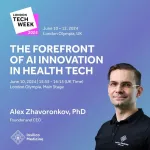(Press-News.org) Many people fail at achieving their early career dreams. But a new study suggests that those failures don’t have to harm your self-esteem if you think about them in the right way.
Researchers found that people who viewed career goal failures as a steppingstone to new opportunities never lost self-esteem, no matter how many times they failed. But those who thought their failures left them worse off showed a drop-off in how they felt about themselves.
“It’s not how many times you have had to give up. It is how you felt about the failures, and whether you thought they led to something better for you,” said Patrick Carroll, lead author of the study and associate professor of psychology at The Ohio State University’s Lima campus.
Carroll conducted the research with Joshua McComis, a former student at Ohio State. The study was published recently in the Journal of Adult Development.
Many young people start off with ideas of what they want to be in the future, and those ideas of “possible selves” can be influenced by friends, family and teachers, among others, Carroll said.
For example, a young woman might embrace becoming a doctor in response to encouragement from a faculty adviser who says she is qualified to succeed in medicine.
But she could later abandon that dream because others felt she was not qualified, and decide to pursue psychology.
“It could be that she thinks this is a step down for her, and that she failed. That would harm her self-esteem,” he said.
“But she could also view psychology as more appropriate for her and a better fit, in which case her self-esteem would not suffer, despite the failure to become a doctor.”
The researchers conducted two studies.
In one study, 59 undergraduate students completed two surveys, one at the beginning of a semester and another at the end. In the first survey, the students were asked, “How many times have you given up on a career goal?” No time frame was given.
They were then asked to rate the extent to which they regretted giving up on past career goals to pursue their present goal on a scale of 1 (definitely not) to 9 (definitely).
Participants completed a measure of their self-esteem that asked them to rate how much they agreed with statements like “I feel like I have a number of good qualities.”
All students rated their self-esteem again three months later at the end of the semester.
Results showed that students reported giving up on career goals between one and five times.
Overall, the study found that the more times students reported giving up on career goals, the more their self-esteem dropped over the semester. But when regret was factored in, those who showed low regret on changing career goals averaged little change in self-esteem, while those who had high regret did suffer from lowered self-esteem.
The second study involved 64 undergraduate students. The study setup was similar, except the participants were also asked to rate the extent to which past revisions to their career goals ultimately led to a better career path.
“We found that when people felt their career goal failures led to something better, that takes away that hit to self-esteem,” Carroll said.
The findings suggest that people should approach failure in a way that can help them in the long run.
Although this is beyond the scope of this study, Carroll said there are techniques people can use to help make failure a way to learn and grow. For example, benefit finding is a way to find the good in a bad situation.
“We’re all going to have failures, some more than others. But it is how you interpret those failures that matters in the long run in terms of how you feel about yourself,” he said.
END
How to protect self-esteem when a career goal dies
Study shows the importance of how people view failures
2023-10-05
ELSE PRESS RELEASES FROM THIS DATE:
Ultrasensitive blood test detects ‘pan-cancer’ biomarker
2023-10-05
Pathology experts engineered an ultrasensitive test capable of detecting a highly specific biomarker found in multiple common cancers
In collaboration with cancer researchers across the country and the globe, the team evaluated the tool’s ability to detect the biomarker in ovarian cancer, gastroesophageal cancer, colon cancer, and other cancers
Diagnostic assays have potential for early cancer detection, monitoring, and prognostics
Marker ‘LINE-1 ORF1p’ is a protein encoded by a human transposon that has further potential applications in tissue diagnostics and may also facilitate treatment of cancers for which no accurate biomarkers ...
Insilico Medicine founder and CEO Alex Zhavoronkov, Ph.D., to present on AI drug discovery at LSX Nordic Congress
2023-10-05
Alex Zhavoronkov, Ph.D., founder and CEO of Insilico Medicine (“Insilico”) will present at the 6th LSX Nordic Conference happening in Copenhagen Oct. 10-11. Zhavoronkov, a leader in generative artificial intelligence (AI) technologies for drug discovery and biomarker development, will present on Oct. 11, 2pm CET on “‘How Artificial Intelligence is Shaping the Future of Drug Discovery, Design, and Development.”
The LSX Nordic Congress is a leading strategy, investment and partnering conference for the Nordic region connecting life science and healthcare ...
Grape consumption benefits eye health in human study of older adults
2023-10-05
In a recent randomized, controlled human study, consuming grapes for 16 weeks improved key markers of eye health in older adults. The study, published in the scientific journal Food & Function looked at the impact of regular consumption of grapes on macular pigment accumulation and other biomarkers of eye health.[1] This is the first human study on this subject, and the results reinforce earlier, preliminary studies where consuming grapes was found to protect retinal structure and function.[2]
Science has shown that an aging population has a higher risk of eye disease and vision problems. Key risk factors for eye disease include 1) oxidative ...
Don’t feel appreciated by your partner? Relationship interventions can help
2023-10-05
When we’re married or in a long-term romantic relationship, we may eventually come to take each other for granted and forget to show appreciation. A new study from the University of Illinois Urbana-Champaign finds that it doesn’t have to stay this way.
The study examined why perceived gratitude from a spouse or romantic partner changes over time, and whether it can be improved through relationship intervention programs.
“Gratitude almost seems to be a secret sauce to relationships, and an important piece to the puzzle of romantic relationships that hasn’t gotten much attention ...
Study confirms age of oldest fossil human footprints in North America
2023-10-05
The 2021 results began a global conversation that sparked public imagination and incited dissenting commentary throughout the scientific community as to the accuracy of the ages.
“The immediate reaction in some circles of the archeological community was that the accuracy of our dating was insufficient to make the extraordinary claim that humans were present in North America during the Last Glacial Maximum. But our targeted methodology in this current research really paid off,” said Jeff Pigati, USGS research geologist ...
More than 10,000 pre-Columbian earthworks remain hidden throughout Amazonian forests
2023-10-05
More than 10,000 Pre-Columbian archaeological sites likely rest undiscovered throughout the Amazon basin, estimates a new study. The findings, derived from remote sensing data and predictive spatial modeling, address questions about the influence of pre-Columbian societies on the Amazon region. “The massive extent of archaeological sites and widespread human-modified forests across Amazonia is critically important for establishing an accurate understanding of interactions between human societies, Amazonian forests, and Earth’s climate,” write the authors. ...
New, independent ages confirm antiquity of ancient human footprints at White Sands
2023-10-05
New radiocarbon (14C) and optically simulated luminescence ages have confirmed the controversial antiquity of the ancient human footprints discovered in White Sands National Park, and reported in a study in 2021. Addressing the widespread criticism of their previous study, researchers report that the independent ages from multiple resolved sources conclusively show that the footprints were left behind between roughly 23,000 and 20,000 years ago, demonstrating that humans were present in southern North America during the Last Glacial ...
Special Issue: Ancient DNA
2023-10-05
In this Special Issue of Science, three Reviews highlight how recent advances in the field of ancient DNA have greatly advanced our understanding of the evolutionary history of many plants and animals, including our own species. “This special issue examines the changing landscape of how ancient DNA (aDNA) is studied today, including previously untapped sources, improvements in technology, and ethical challenges, and what we’ve learned about ourselves though ancient DNA,” write Corinne Simonti and Madeleine ...
What are the risks of radioactive wastewater release – the next of which is October 5th – from Fukushima Daiichi nuclear plant?
2023-10-05
Wastewater release from the Fukushima Daiichi nuclear plant in Japan is expected to have negligible effects on people and the ocean, Jim Smith and colleagues report in a Perspective. The planned releases of radioactive wastewater, 350 million gallons of which has been stored at the site since the 2011 earthquake and tsunami that triggered the Fukushima plant’s meltdown, began in August 2023 and are expected to continue for perhaps the next 30 years. The second release is scheduled to start on October 5th. While the scheduled releases have sparked international concern, Smith et al. discuss the science behind the risks and ...
Discovery made about Fischer Tropsch process could help improve fuel production
2023-10-05
A fundamental discovery about the Fischer Tropsch process, a catalytic reaction used in industry to convert coal, natural gas or biomass to liquid fuels, could someday allow for more efficient fuel production.
Washington State University researchers discovered previously unknown self-sustained oscillations in the Fischer Tropsch process. They found that unlike many catalytic reactions which have one steady state, this reaction periodically moves back and forth from a high to a low activity state. The discovery, reported in Science, means that these well-controlled oscillatory states might be used in the future to enhance the reaction rate and the yields of desired ...
LAST 30 PRESS RELEASES:
Alkali cation effects in electrochemical carbon dioxide reduction
Test platforms for charging wireless cars now fit on a bench
$3 million NIH grant funds national study of Medicare Advantage’s benefit expansion into social supports
Amplified Sciences achieves CAP accreditation for cutting-edge diagnostic lab
Fred Hutch announces 12 recipients of the annual Harold M. Weintraub Graduate Student Award
Native forest litter helps rebuild soil life in post-mining landscapes
Mountain soils in arid regions may emit more greenhouse gas as climate shifts, new study finds
Pairing biochar with other soil amendments could unlock stronger gains in soil health
Why do we get a skip in our step when we’re happy? Thank dopamine
UC Irvine scientists uncover cellular mechanism behind muscle repair
Platform to map living brain noninvasively takes next big step
Stress-testing the Cascadia Subduction Zone reveals variability that could impact how earthquakes spread
We may be underestimating the true carbon cost of northern wildfires
Blood test predicts which bladder cancer patients may safely skip surgery
Kennesaw State's Vijay Anand honored as National Academy of Inventors Senior Member
Recovery from whaling reveals the role of age in Humpback reproduction
Can the canny tick help prevent disease like MS and cancer?
Newcomer children show lower rates of emergency department use for non‑urgent conditions, study finds
Cognitive and neuropsychiatric function in former American football players
From trash to climate tech: rubber gloves find new life as carbon capturers materials
A step towards needed treatments for hantaviruses in new molecular map
Boys are more motivated, while girls are more compassionate?
Study identifies opposing roles for IL6 and IL6R in long-term mortality
AI accurately spots medical disorder from privacy-conscious hand images
Transient Pauli blocking for broadband ultrafast optical switching
Political polarization can spur CO2 emissions, stymie climate action
Researchers develop new strategy for improving inverted perovskite solar cells
Yes! The role of YAP and CTGF as potential therapeutic targets for preventing severe liver disease
Pancreatic cancer may begin hiding from the immune system earlier than we thought
Robotic wing inspired by nature delivers leap in underwater stability
[Press-News.org] How to protect self-esteem when a career goal diesStudy shows the importance of how people view failures


